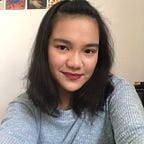How Nonfiction Books Help Me
I’ve always loved reading since I was in junior high, and now I am in my third year of college. However, I only started reading nonfiction four years ago—not to mention the months of a reading slump I went through and tons of college assignments. In short, I haven’t read that much nonfiction. Nevertheless, I feel qualified to tell you how nonfiction books have positively affected me in numerous ways because I have experienced it myself.
Expanding knowledge
I suppose this is the most obvious one, but I just had to say this because this is one of the first benefits that I felt. Reading fiction is fun and I still do it to relieve stress, but nonfiction books are my go-to when I want to feel less stupid and know more about things in this world. I usually do not have many preferences in choosing my nonfiction books which adds more to my benefits because I can read about many interesting facets. I can go from the history of sexuality and religion in Sex and the Constitution by Geoffrey R. Stone to scientific elaboration on trauma in What Happened to You? by Oprah Winfrey and Dr. Perry.
However, I also think that it is perfectly fine to have a preference when reading nonfiction books because they can be heavy, and reading something that you are not fond of may not be the best way to finish the book.
Personal tip: try not to read so fast when reading a nonfiction book so you could comprehend what’s happening and remember it.
Increasing awareness and critical thinking skills
I have Factfulness by Hans Rosling to thank for this. I am aware of the current social issues we are facing, but Hans Rosling’s Factfulness just brought up more facts to light about it. For instance, I am aware that there are thousands or even millions of unfortunate children who still do not have access to proper healthcare, but we are actually doing better than decades ago. Some things that we think are deteriorating are actually better now. Of course, this does not justify the misfortunes people are having right now, but it relieves me a bit to know that we have made positive changes throughout the years.
Yuval Noah Harari’s Homo Deus is one of the first books that sharpened my critical thinking skill. Although some phrases were hard to understand, the book connected the dots I never knew were there. Along with Sex and the Constitution and What Happened to You? the book helped me to understand many things starting from the causes up to how they could affect others.
Personal tip: if you don’t mind getting your book dirty, highlighters and post-it notes are super helpful.
Building thesaurus
Nonfiction books are often formal and have proper sentence structures (compared to some fiction books that are laid-back and written as conversations). This has helped me a lot to enhance my academic writing skill and debates. I often find some words that need to be said repeatedly but I don’t want to make my writing look repetitive. As my vocabulary develops, I get to tackle that issue.
Self-help
I am not recommending self-diagnosing at this point. I still urge you to seek professional help if you have problems. My point with this is that some nonfiction books have successfully helped me to feel better or made me realize that I needed to seek further help. For instance, Susan Nolen-Hoeksma’s Women Who Think Too Much calmed me down with her explanations on overthinking and how to help relieve it. What Happened to You? made me realize that I had a problem and I needed to go see a psychologist or a psychiatrist. Books may always not have all the answers, but they are surely a great companion for us while we try to answer the questions.
These benefits are the ones that I experience personally, but I also have found similar benefits to be explained in other blogs. Thus, I think it is safe to assume that nonfiction books are actually helpful in general!
